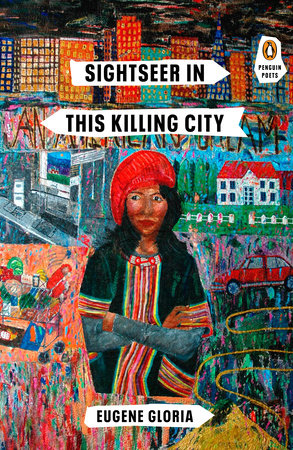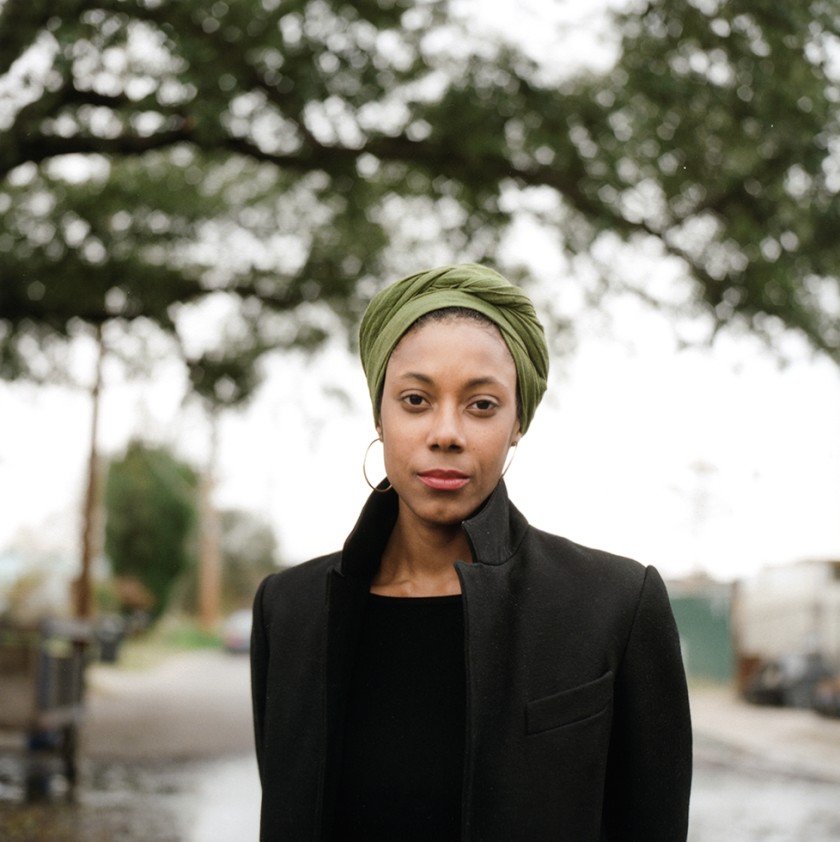Readers of Eugene Gloria’s poems have a cultivated patience, a relationship with time. It has been seven years since the publication of his last book, “My Favorite Warlord,” winner of an Anisfield-Wolf Book Award.
In 2013, Henry Louis Gates Jr. praised Gloria’s poetry by remarking on his own keen interest in genealogy. The Anisfield-Wolf jury chair located a kinship in the poet’s exploration of our origins “as a key to the present [that] is compelling, addictive, and – in the best circumstances – generative. It is this last quality that is evident on every page.”
Gloria, 62, is deeply attuned to heritage and displacement. Arrivals and departures cycle through all four of his considered, beautiful and nimble poetry collections.
“My Favorite Warlord” opens with “Water,” a 39-line poem that took Gloria five years to write. Reading it now, it seems to flow toward the new book, “Sightseer in This Killing City.” The poet Yusef Komunyakaa identified “a playful exactness” in Gloria’s first collection, “Drivers at the Short-Time Motel,” which remains just right describing this new work.
The speaker of the title poem, “Sightseer in This Killing City” is in Dallas:
When I arrived, I saw the grassy knoll
Down that killing square. My cousin sick
and so I came with only Roethke’s line:
‘On things asleep, no balm.”
This poem may be set in Texas, but the book’s sensibility is informed by the troubling ascendancies of Philippines President Rodrigo Duarte and the U.S. President Donald Trump, both elected in 2016. The title poem ends, “And tomorrow is the past,/a gurney’s wheels squeaking/dry and violent through contagious halls.”
Democracies in the hospital, perhaps, the world a place of contagion, which “smiles wide as elevator doors.” The dis-ease is clearly infectious, leaving the reader, like a voter, to puzzle this out.
Gloria, born in Manila as his parents’ youngest child, grew up on both sides of the Pacific Ocean after his family settled in San Francisco. He has traveled widely but has lived mostly in the Midwest, the last two decades as a professor at DePauw University in Greencastle, Indiana.
In the 48 poems of “Sightseer in This Killing City,” there is an exquisite, erudite, yet plain-spoken care with language from a poet well-read across continents and centuries. Snippets of verse from William Shakespeare and Charles Baudelaire crop up; so does a line from an Al Green song.
Anisfield-Wolf winning poet Marilyn Chin observes that Gloria’s new book tells unsettling stories “that praise ordinary people.” This is exactly right, including people on buses and those waiting in terminals. Poet Rigoberto Gonzalez calls the experience “a blessing to have Eugene Gloria help us reckon with the troubles histories that shape America [and] the Philippines.”
The new collection’s first poem, “Implicit Body,” ends stunningly by re-purposing a rift from a Stevie Wonder song. Gloria writes: “Call me Mr. Gone / who’s done made / some other plans./All that remains is nostalgia/and this aching torso of blue.”
One innovation is a persona Gloria calls Nacirema. The poet explains that the name “comes from artist Michael Arcega’s clever use of nomenclature as a way of examining Filipino American identity as well as his repurposing of Horace Miner’s essay ‘Body Ritual Among the Nacirema,’ from American Anthropologist, 1956.
The issue of the magazine published a few months before little Eugene was born in the capital city. It is a continuing pleasure to dwell in the worlds, and work, that child has wrought.



